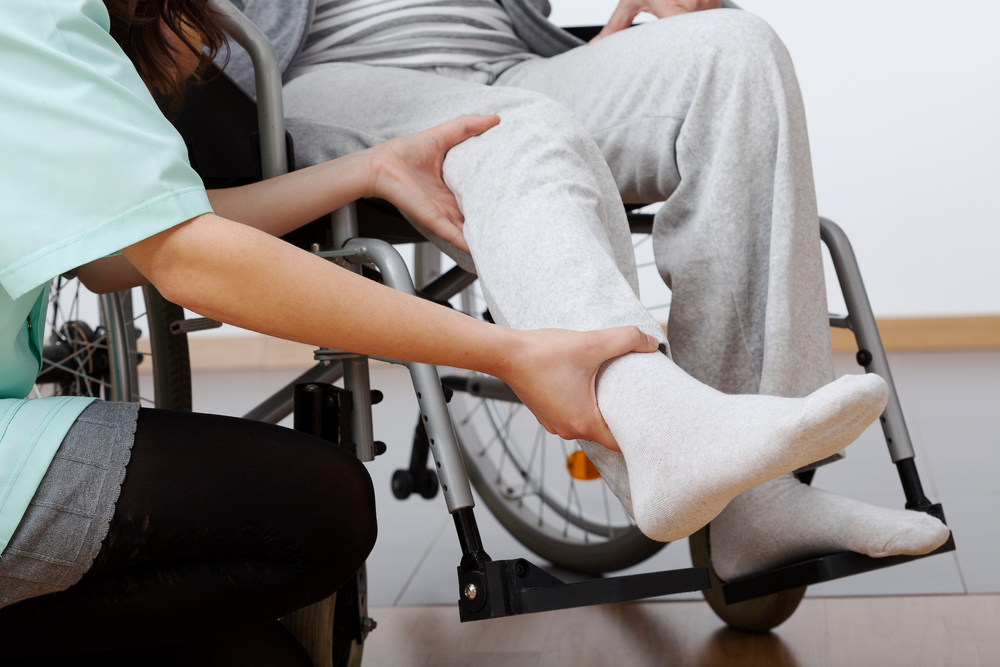
Nursing Home Injuries & Neglect in DC


What do you do now to make sure that he or she is getting the right care and is not being mistreated or abused? There are different kinds of abuse that you need to look out for, and you need to know some things that you can do if you find that your loved one is being abused.
Types of Abuse
There are a number of ways that a resident-patient of a nursing home or care facility can be abused. Under federal law, your loved one has the right to be free from verbal, sexual, physical, and mental abuse.
Skilled nursing facilities provide essential care for many patients, but unfortunately negligence and violations of the law still occur far too often. There are several key areas where nursing homes can be held liable:
Elopement: When patients with dementia or Alzheimer’s wander away from the facility and become lost or injured, this is known as elopement. Nursing homes are required to have adequate supervision and monitoring systems in place to prevent elopement, and failure to do so can result in legal liability.
Bed sores: When patients develop severe pressure ulcers or bedsores due to inadequate repositioning, nutrition, or cleaning, this indicates neglect and substandard care. Nursing homes may be held liable for medical costs, pain and suffering due to bedsores.
Pharmacy errors: Wrong dosages, missed medications, or failure to properly monitor for drug interactions can have severe health consequences for patients. The facility is responsible for ensuring medications are ordered, dispensed, and administered correctly.
Abuse and neglect: Both physical and mental abuse of patients by staff, as well as failure to provide basic needs and services, are illegal and grounds for litigation. Nursing homes must have systems in place to prevent, identify, and properly respond to abuse allegations.
Families of patients who have suffered harm due to negligence in skilled nursing facilities have legal options to seek accountability and compensation through litigation. They should gather evidence such as medical records, staff testimony, and expert opinions from healthcare providers to support their claims. Holding negligent nursing homes responsible can help drive improvements that protect other vulnerable patients.
In addition, care facilities can’t subject him or her to corporal punishment-that is, physical contact with the body designed to inflict pain, like “spanking,” for example. Nor can facilities use involuntary seclusion, or “solitary confinement.”
“Neglect” can be a form of abuse. Neglect can take on a variety of forms, including the failure to:
- Provide clean and adequate clothing
- Provide medical care for both physical and mental health needs
- Protect the resident from health and safety hazards
- Protect an individual from abuse from other residents
- Prevent malnutrition and dehydration
When you visit your loved one, make sure the bathroom is clean, check for odors in the bed and on his or her clothing, pay attention to unexplained weight loss, and look to make sure his her hair and nails are clean. Also, pay attention to changes in behavior: is he or she more quiet than usual or seem depressed?
Though technically not “abuse,” a home or facility can’t misappropriate your loved one’s money or property or allow other residents to do so. Based on state guidelines, facilities must place resident funds in interest-bearing accounts and be able to provide a full accounting of the funds deposited. A nursing home cannot require a resident to deposit his or her funds with the nursing home in order to obtain care.
What the Home and State Must Do
A nursing home or care facility must develop and implement policies to protect residents from abuse. The policies must provide for the adequate screening, training and supervising of employees, as well how to identify, investigate, and report abuse.
A facility must ensure that all alleged violations involving mistreatment, neglect, or abuse, including injuries of unknown source and misappropriation of resident property, are reported immediately to the administrator of the facility and to other officials in the manner detailed by the laws of the state where the facility is located.
The state must investigate all allegations of resident abuse and neglect and misappropriation of resident property. If misconduct in fact occurred, the state must report the findings to the wrongdoer, the home’s administrator and, if applicable, the board of nursing, nurse aide registry or other appropriate state agency.
It is critical that you report immediately any abuse, or suspected abuse or mistreatment, to the administrator of the home or facility. He or she must investigate the matter. If you’re not satisfied with the response, then contact the adult protective service in your state, or your local area agency on aging.
A nursing home can’t stop you from visiting or evict your loved one simply because you reported abuse. However, the home can set reasonable “visiting hours,” and your loved one retains the right to refuse visits from particular persons, except his or her doctor and state or local officials.
Contact The Law Offices of Kim Parker, P.A., to discuss your loved ones nursing home injury or neglect in the District of Columbia. Our DC nursing home injury attorneys can share your options.
410-234-2621
